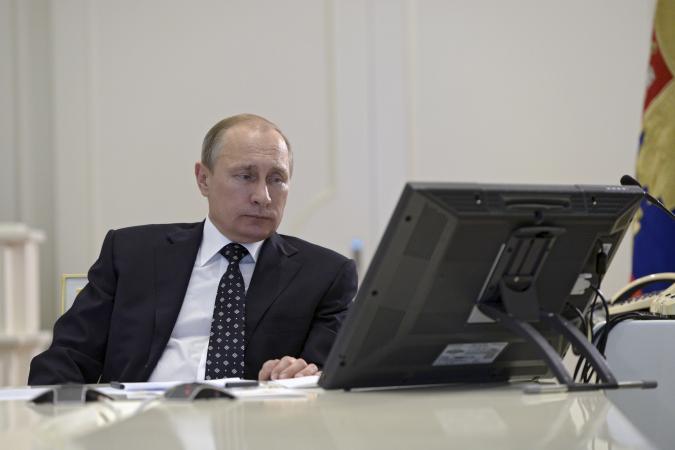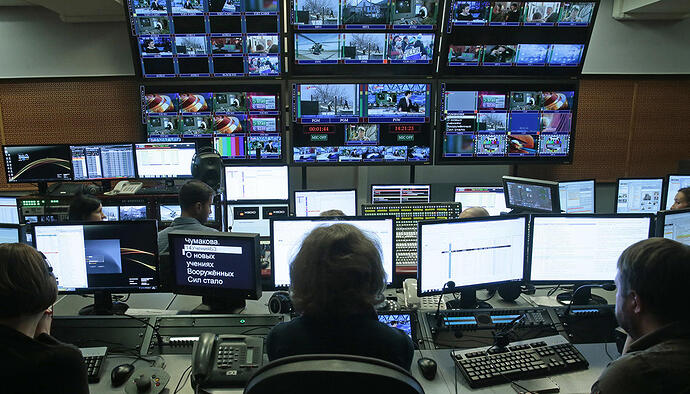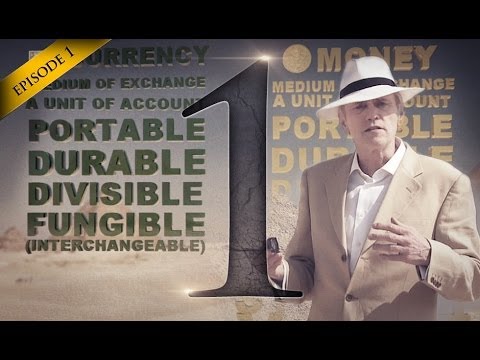Dropping off some diapers, baby wipes, and underware at Edmonton's airport receiving centre. Place is packed and more is coming in. You can do all the "prepping" you want in this world, but survival will depend on a self sacrificing COMMUNITY. If the Fort Mac fires demonstrate anything, it is this basic fact.
Debating this topic with you in this forum is fruitless for a variety of reasons.
First, there is a lot of material involved & I don't have the time or energy to layout the counter argument. I'm not one of these people who writes posts nearly 24/7 with posting times of 12:30am, 2:30am, 4am, 9am, 11am, 2pm, 5pm, 8pm, 10pm, 11pm, etc. voraciously advocating for much of the financial status quo. The anti-status quo types generally are the voracious ones. I have a job that is significantly more than full time (for which I am quite thankful for), I have a full family, I like a full night's sleep, and I like to be as active as possible for my health & well being.
Second, I have no interest in debating people with fixed, firm beliefs. I do have an interest in pointing out to others who are less familiar with the financial system that there are differing thoughts out there, especially when I believe fiction is being peddled.
I would refer folks who are interested in learning more about our debt based monetary system to The Crash Course videos which can be clicked on in the upper left part of this web page, many YouTube videos, a Google search, the movie 97% Owned, etc. People should do their own research. One major problem with the world, especially in the U.S., is that people have gotten intellectually lazy & want others to tell them what's going on. This is why our politicians & financial system has gotten away with so much propaganda. I highly recommend everyone try to learn as much as they can doing their own independent research & then arriving at their own conclusions. Isn't this what Dr. Martenson alludes to in this article?
dryam-
No fact-based objections to raise of your own, eh? Ok no problem.
The amusing thing for me is when you label me a supporter of the status quo. I know, I either have to toe the goldbug/Austrian economics/money-printing-shoulda-sent-gold-to-$5000 party line or else I'm a shill for the bankers.
My problem is I'm a non-mainstream-goldbug goldbug. So the mainstream goldbugs get really upset and want to crucify me for coloring outside the mainstream-goldbug lines. One would think the "non-mainstream" thinkers would be more flexible in their thinking, but they really aren't. They just jumped from one inflexible viewpoint (mainstream) to another inflexible viewpoint (goldbug).
Me, I'm still exploring. I have the temerity to ask questions like, "hey, so what's wrong with central banks owning equities?" Its fun to color outside the lines. At least in my world it is. Most teachers don't like it, some bosses don't like it (other bosses really love it - go figure), and you clearly don't like it, but I just can't help it. Its fun.
If your job is inventing new things, it generally works out pretty well.
blackeagle-
Banks print money out of this air (Not backed dollars), then they back it against some real assets when they lend it. The problem is that not all assets are (easily?) convertible into $$$. and when there are too many $$$ in circulation, then there is hyperinflation.Yes! Banks print unbacked money out of thin air, then instantly get it backed by some real assets. (Its nice to have a banking license, isn't it? Its actually a license to print money. Who knew?). I simplified the process, but your version is more correct.
Here's the new piece though.
Neither inflation nor hyperinflation comes from an increase in the quantity of money. Goldbugs will squawk, but I point them to Art Cashin, a contributor at KWN who says, "if I gave you a trillion dollars, and you kept it in the basement, it would not add to inflation at all." Quantity alone doesn't cause inflation. Only spending the money causes inflation.
As far as I can figure it, new bank credit causes inflation because it is (almost always) promptly spent into circulation. If people borrowed money from the bank and kept it under the mattress, that wouldn't be inflationary, but that's not what happens. People borrow money to buy cars, houses - basically, to buy stuff. So the new bank credit automatically has a spending action attached to it. People imagine it's the new money that causes the trouble, but its actually the spending of the new money that does the inflationary heavy lifting. So who cares about this distinction?
Well, we can see this more clearly with government deficit spending. Government deficit spending is very clearly inflationary (I can cook up a million charts to show you this), but the act of deficit spending creates no new bank credit. So what's the inflationary mechanism? Basically what happens is, existing bank credit (sitting in a savings account) is snatched by the government, a bond is given to the saver in exchange, and that snatched money is promptly spent into circulation. Savings that was just sititng there (velocity = 0) was mobilized by the government. No new money is created, but velocity increases, and so does inflation.
Same thing happens if the central bank monetizes the government deficit who then spends it into circulation. Monetized deficits and unmonetized deficits are actually no different in terms of the change in velocity.
And if the savers just suddenly decided to spend their savings, that causes inflation too, without increasing the quantity of money.
Of course, if people lose confidence in the money (savers increase spending), AND the government is monetizing the deficit (creating money and then spending it into circulation), then that has a multiplying effect. That's a double velocity increase x mass of money increase = a squared-effect and that's why things just go nuts.
Japan is a great case in point. The great mass of Yen just sits there and does nothing. Basically, its Art Cashin's Trillion Dollar basement money. Not inflationary. Once the Japanese decide their money has become problematic, that mass will be multiplied by a higher velocity and then the wheels come off. But until people actually start to spend it, it won't matter how much they print.
I think about all these low level details because someday I want to develop a simulation and see if I can get a business cycle as an emergent property, kind of like Steve Keen has done, but - with a bit more of a wargame flavor to it. I need a staff, I really do.
Who said anything about gold? I've noticed you like to use the term 'goldbug' to throw discussions off on other paths when gold isn't even being discussed. It's a subtle attempt to disparage others that disagree with & mislead others.
Btw, I highly doubt involving gold in some new type of monetary system is going to be of much benefit.
Work is now over. I'm headed home & will go for a walk with my wife and dog. I recommend everyone get some sunlight and vitamin D. It can do wonders. Happy posting.
Peace
Alberta government will be issuing $1000 to $2000 per person affected by the FMac fires, so they can have money to buy a meal or a few groceries or replace a debit card or "cooked" plastic money. Many "savers" will be contributing to inflation and velocity by spending some of those hard earned dollars helping their neighbors in the north to get just enough to survive on their "new normal" (no home, perhaps no job and years of rebuilding for a very tenuous future in a very low margin industry). My impression is, however, that the majority of them are committed to persevere and will try to make a future by rebuilding an economy and functioning community.
Contrast this to a continuing civil conflict in the middle east where vastly more quantities of capital is being sequestered in arms and the destruction of lives and a way of life. Pick your disaster: environmental catastrophe or a man made one. You know who gains in the man made situations - those loaning money to both sides and collecting commissions and interest. I know where my savings will be spent. As for the government's actions, I get to decide at the next provincial election.
Appreciate your insights, Dave!
Aloha! Money is money and the money we have today is decreed by government and essentially backed by a military junta. No diff between what Obama and the US Treasury enforce and what Caesar enforced back in Rome. You can't go to Starbucks and buy a McMuffin with Canadian money or beads or barter whether gold or slaves! The POS exchange has to be "coin of the realm"! Decreed by law! You can sell your gold or your beads and take the US Dollars and buy the McMuffins. But who didn't know that?
My biggest concern is not about "what is money", but the "quality of money". When politics enters the equation then so does corruption. Here let me show you …
I cut this out of the US Treasury Daily Statement and it shows for FY2016 Obama's Regime issued some $1.04TRIL in debt to date. There are four months left in this fiscal year so I am sure there is more debt to be issued. The following is just for one day at the US Treasury, May 5th.
Look at the bottom line called "Net Change" and see the far right corner …

Now here is how much taxation the Obama Regime sucked out of the productive members of the US economy to date. See that in the right lower corner? It is $1.74TRIL.

If you add the taxes to the debt you get $2.744TRIL. The $1.04TRIL of debt is to be paid or not by future generations … your kids and their kids. The income and corporate taxes are gone! They get scooped away every day, every week, every month and spent right away on various political agendas. Usually the agendas involve making government bigger and your paycheck smaller.
Now this is where that money goes. It goes to pay off insiders, lobbyists and to buy votes. It goes to a myriad of government agencies. You can see for May 5th some $108BIL went through the US Treasury and all those agencies. These funds are in the Federal Reserve Account. The USA is the only customer the US Fed has, supposedly. See below here.

Wow, look up there on the right … $7.15TRIL ran through the US government coffers for FY to date, siphoned off to hundreds of agencies and millions of workers and dependents. That is a lot to keep track off in an accurate manner.
Do you really think government workers and their bosses and the US Congress can spend that $108BIL on May 5th wisely and prudently and without temptation of fraud or corruption? The money is there but there is no QC! Those who have been entrusted to spend that capital know they are spending other people's money, not their own. Is there a conflict of interest? Are politicians human? Most of the politicians can't even count past 100 without getting mixed up, yet they are handling $108BIL in one day. Do we trust the government programmers to make sure every dime is accounted for? Who audits the auditors?
Empire historically has little to do with efficiency and decency and a lot to do with fraud and corruption and hubris and narcissism. It is all just human nature!
Dave,
Thanks for the explanations.
If I understand correctly, there is something scary: To keep the wheel of economy and finance spinning, governments are swapping our savings by debt. As long as you don't claim your savings (spending) then things are stable for a long way.
Money is part of a complex system to exchange work for something else we need. Over the ages, this system got more and more complex.
I think complexity is part of our genes. We start things small and simple and progressively add complexity to them. Complexity is a function of: population size, resources and energy availability, quest for efficiency, quest for profit, etc… All systems humans build (social, economical, political, technological, etc…) are doomed to be more complex over time and eventually crashes. As someone wrote (was it on PP?): We are a cyclic animal, not an evolutionary one.
JM
Many are losing their way here at PP.com… thanks to DaveF. I can't believe the number of folks who up voted Dave in his discussion with DrYAM. This is the problem with having a banker shill as the resident Gold analyst, given a pulpit by the owners of this website. I only seek truth… I care not what anyone thinks of me for what I say. Here is the truth as I see it;
Dryam is correct in his assertion that Dave is off his rocker here. Dave said,
Now then - if you wanted to back a currency, you could theoretically choose anything. Gold, land, sovereign debt, municipal debt, corporate debt - or you could choose equities.Would you rather have (let's say) shares in AAPL, or the sovereign debt of Italy? Or Spain? Or Portugal? Or Non-performing loans from Italian banks? Or rotten subprime mortgage-backed securities?
Ultimately, what's wrong with having high quality equities on the balance sheets of our central bank/hedge funds? Say, just the dow 30? As a taxpayer, I'd almost prefer them over sovereign debt.This is perverse (even though some central banks, namely Japan and Switzerland, are already doing it). First off, the idea of markets is that they price things based on supply vs. demand.. the stock market being no different. Does anyone other than myself (and DrYam I would suppose) intuitively grasp the fact that when central banks create thin air money in order to buy stocks whose value is denominated in said money, that they are essentially capturing that market. The "values" of the stocks are now in their control... and they are in a sense meaningless. That this might, "back" the money is simply describing a self-referential hall of mirrors.
This same game goes on in precious metals… in a different way; between the Comex, and London markets, you have synthetic paper markets that are much bigger than the underlying physical trading markets, that are captured by the bankers who make the money. Here are two posts for those who want to get better educated as to how this works;
https://www.bullionstar.com/blogs/bullionstar/infographic-london-gold-market/And,
http://www.tfmetalsreport.com/blog/7605/comex-gold-open-interestThere is a very important concept that one needs to grasp to really understand money - I was first exposed to it in Vincent LaCascio's book, "The Monetary Elite vs Gold's honest discipline", and that is; scarcity integrity.
Now if the monetary masters of our system allowed for deflation to happen… in other words they allowed the amount of money to wax and wane based on demand for debt… then our unbacked, debt-based money system could actually have a reasonable level of scarcity integrity.
But it doesn't… when bankers get too powerful, using the money they create effortlessly to pervert everything and anyone in their way, they will always use their printing press to their own benefit… to the furthering of their status quo. Scarcity integrity is what real physical Gold has… and it's also what makes Bitcoin so successful (aside from the elegance of the Blockchain) … QE is a perversion of the system… it's a way to print money when none is being demanded. QE to buy sovereign debt is a perversion. QE to buy stocks is a further perversion, signaling the ultimate fusion of corporate and government interests… there's a name for it. There a bill for it to;
https://en.wikipedia.org/wiki/Transatlantic_Trade_and_Investment_PartnershipSo, up vote away folks... I am sorry to see the discourse here going so far downhill. I am sorry to see how Dave has taken over the conversation and pulled the wool over so many eyes in this most important discussion about what money is, and what it should be. I am not going to come back here and argue with Dave.. like DrYam I am busy too.
Finally, if you want to understand where we are in the Gold story… and I believe we are getting very close to the point where the captured, leveraged paper markets break down and the realization sets in for many who think they own Gold that they own only paper markers for Gold that are not redeemable… here is a wonderful guide;
http://www.tfmetalsreport.com/blog/7615/guest-post-death-gold-market-paul-mylchreest
I like that quote Jim. Here's a favorite of mine as well.
One of the interesting takeaways from Rowe this year was how many of the posters with masculine usernames turned out to be women. Doesn't matter how long you've known someone online, until you've met them in person…you really don't have a good idea who they are or where they are coming from.
Something relatively new that has been working for me…if we've never met in person, then I make a conscious effort not to allow that person to get under my skin…to stay detached when they start hitting emotional buttons.
Put another way, if I know you personally I'll put more out there.
If not, no point in getting stirred up. The person stirring the online pot could literally be anybody…




We aren't always at the keyboard…although sometimes it seems like it…

JimH-
Boy that went bad in a hurry.
In my recent posts which seem to have really triggered you, I have been trying to explore the concept of a central bank-as-hedge-fund and its implications for prices going forward. My thought process started when I looked at the assets and liabilities of the Fed, really thought about what Chris said about the SNB, and then I thought about Armstrong's "private wave" where sovereign debt will be defaulted on, and then asked myself, as taxpayer, if I were forced to pay for the losses of this hedge fund, what would I prefer to have it holding? And as manager of the hedge fund responsible for the potential losses, what would I do?
Part of my problem is my thinking process (and where I want to end up) isn't clear sometimes when I'm starting out on a topic. I don't even know where I'm going. I just have questions in my head and I want to ask them. Now I think I'm getting clearer, so after agreeing with your central point, I'll do just that.
...when central banks create thin air money in order to buy stocks whose value is denominated in said money, that they are essentially capturing that market. The "values" of the stocks are now in their control... and they are in a sense meaningless. That this might, "back" the money is simply describing a self-referential hall of mirrors.Yes. I totally agree. This we can clearly see happening in the case of the BOJ. They deliberately set out to own the JGB market, and so the price of those bonds is most definitely self-referential. Same thing to a lesser extent with the Fed and the Treasury market. That's a bad thing because the price signal is lost, and that's bad in a number of different and really important ways.
But that's not what I was talking about! Just to be very clear, I'm not advocating that the central banks buy equities (or other assets) with thin air money to keep the markets propped up! I think it is a terrible idea.
So back to my point. Let's assume we run the SNB. Because of the way central banks work, we are required to back the CHF by owning stuff - some of it being gold, other stuff being financial assets. What would we pick? Just perhaps - the dow 30 might be in the mix. And if our other option were sovereign bonds that we know are about to blow up…what action would we take? Buy more sov debt? Or buy something else?
In order to avoid moving the markets by our actions, we have to pick markets that are very deep. That means gold is probably out (and also given we central bankers don't want gold to go nuts - gold is probably out for that reason too). That leaves equities.
What are the larger implications of this? A single central bank won't move markets by what it decides, but if they all decided to independently move more or less at the same time, what would that look like? And what would trigger such a move? If the safe EU sov debt was all trading at negative yields (and it is), what then?
I'm claiming that we may be seeing the start of this process right now. What we imagine is "central bank market propping" may be partly that, but it may also be partly something else too. If the EU really does explode, there are a lot more central bank reserve assets that currently own EU sovereign debt that will flee.
Net-net? Those expecting a stock market crash (currently including me, but I'm starting to waver) may well be faced with a flood of money coming from official and semi-official sources fleeing both JGBs and Euro sovereign debt right into equities. SNB's AAPL position may be warning us of exactly this.
So instead of laughing at the "clearly silly" behavior of the SNB, and assuming that equity-market price movements are all about market-propping behavior or sneaky futures-buying, we might ask ourselves, what might happen when the prospects of an EU breakup increase? Clearly they've crossed the equity ownership rubicon already…
Again, I'm about prices. My goal is not to be so entrenched in a world view so that I ignore what prices are actually saying because my belief system is screaming at me "the market must crash because the P/E values are too high."
And this place here can be a bit of an echo chamber in that regard. Stepping outside the lines of peak prosperity orthodoxy carries with it the usual penalty for different-thinking that carries back to playground days, and is enforced by playground-bully-activity.
Let me ask you the following (related) question: did name-calling behavior save any of us from the 4 year gold bear market?
blackeagle-
If I understand correctly, there is something scary: To keep the wheel of economy and finance spinning, governments are swapping our savings by debt. As long as you don't claim your savings (spending) then things are stable for a long way.Yeah that's it. We are now in a position now where the government deficit-spending of our savings contributes materially to economic activity. Without it, we get a wave of deflation and the economy tanks. I'm not advocating this, just describing what is.
At the same time, if we all decide we want to spend our savings, that ends up causing a wave of inflation. In some sense, the checks are only good if we (mostly) decide not to cash them.
We've become addicted to a built-in government deficit and/or a built-in growth in private debt. Steve Keen proved this with his spreadsheets. Any stepping-off this particular treadmill and society gets hit with a wave of deflation that tosses the current party right out of power. Humanity dearly loves to have a scapegoat.
But and as you said, humans seem to be cyclical beings by nature. Herd behavior writ large. And politicians all promise that they will somehow prevent the cycles from happening ("I'll make america great again") when the cycles themselves appear more or less written into our DNA.
Uncletommy-
I agree with all of what you said. Savings spent to rescue your neighbor in a bind is the right thing to do, even if it is inflationary, while savings spent to further destabilize some middle-eastern nation is counter productive in so many different ways. "When you find yourself in a deep hole, the first thing you must do: stop digging."
dave,
you may want to re-consider what it is that you are calling money - if you can print it ad nauseum with little or no effort, then it's not money. real money stands for real labor, for real value.
i know there is a lot of mis-direction by the counterfeiters who call themselves "central bankers", but if we look back to the classic definition of good money put forth by aristotle, money has these properties:
- durability
- portability
- divisibility
- fungibility
- scarcity
the US dollar is nothing more than an IOU note from a deadbeat uncle (uncle sam).
as jp morgan himself put it, "only gold is money. everything else is credit".
if you'd like to know more about the central bank counterfeiting scheme called "fiat", the renegade economist has this excellent short clip:
for a more in-depth review of the difference between money and currency, i recommend watching mike maloney's truly excellent hidden secrets of money series, here is episode 1 to get you started:
you're a funny guy, dave! you're trying to say that a promissory note (us dollar) is not unbacked, because it's backed by "sovereign debt", or, in other words, another promissory note?
i can understand how you might be confused on this topic.
it used to be that in the usa there were gold certificate and silver certificate dollars, that one could walk into a bank and exchange the then-backed dollars for gold or silver coins. well, those days are long gone, there is nothing currently backing the dollar, there is nothing set aside on deposit to trade dollars for, they are completely unbacked, except by promises from your good ol' deadbeat uncle sam.
convertibility of the dollar was ended in 1971 by "tricky dick" nixon, who lied and claimed he was "temporarily suspending" the dollar's convertibility to defend it against the evil speculators. of course, it was permanent not temporary, and the only thing he was defending, was america's profligate ways, america's exorbitant privelege, after being called out by charles degaulle of france.
the truth is, it was a default by the usa, it was a promise that was backed out of, and it's one of a long list of examples of why it would be unwise to trust the federal government or its promises.
wow, that's a great question, dave, and i have one for you as well:
hey, so what's wrong with the mafia buying up all the land and all the productive businesses in your town with cash that they earned through extortion, theft, counterfeiting, and racketeering?
you do understand that central banks are essentially a crime syndicate, extracting wealth from working people and funneling those funds to the top .01%, don't you?
you have heard of financial repression, i hope? here's investopedia's definition of it, in case you haven't:
chris did an excellent off-the-cuff podcast with john rubino a while back concerning financial repression and the central banks' war on savers, i highly recommend you give it a listen if you truly are interested in why it is a problem for the wealth of our society to be extracted by duplicitous means by the central bankers:
https://peakprosperity.com/insider/88401/cuff-war-savers
i hope the above sources for info are of help to you.
reflector-
Yes, I'm familiar with all the history, and agree in large part - that is generally why my long term holdings are mostly "real things" (or derivatives of real things) rather than money.
And yet I am still stuck with my original question, which I find you did not answer. Given we remain in the current paradigm, if a central bank like the SNB is going to buy a financial asset to back its currency, should it buy a sovereign bond from Italy or a share of AAPL stock? Those Swiss are pretty conservative. What does it mean when they choose AAPL over German sovereign debt that has a negative yield? What would I do in their place? Would I approve if I were a Swiss citizen? And what does this mean for the future?
A lot of people get confused and mistake my questions and comments for advocacy or support for the system. I'm trying to explore both how things actually work, how the people in place running things might be thinking, and from that to suss out generally what might happen next.
So, where do you see things going next? What's the path of the buck over the next year? Will it tip over and sink relentlessly until it hits zero? (That prediction hasn't done so well in the past 3 years). If so - what happens to the USD when the EU implodes? And why? How about Japan? How about US equities? A mind-numbing crash, or is a spike higher possible if/when all that central bank money flees the Euro and runs for somewhere other than sovereign debt?
I'm quickly learning that those who determine what money is and what it isn't don't care about my opinion (or indeed that of many others here). The system works for them, it allows them to rapidly generate vast amounts of capital and supercharge the economy which the underlying fundamentals can't possibly sustain. Were it my choice, I, like Jim, would elect something scarce to function as money, not only to store value, but to inhibit the reckless exploitation of our life support systems (forests, oceans, soil) and to limit the stress we put on ourselves (through debt needed to afford insane asset prices).
The point is; we don't get to decide what money is - for we are the unpeople. We don't even get to discuss what it should be in formal debates (i.e. UK parliament). The bankers tell us what it is - it is strictly their plaything.
I'm starting to think that is where the reform is going to come from - developing a monetary system that reflects the capacity of our immediate environment. In Edo Japan it was rice. Try printing that…
Dave,
I don't have anything other than a gut reaction to your question. I don't like the idea, but I don't have any sure fired alternatives that are guaranteed to work. I have more questions than answers.
How much is too much? Which stocks should be bought and which ones should be avoided? What happens to the bank's balance sheet when the inevitable bear market arrives? If they make the wrong choices, who pays the consequences? Can connected insiders somehow profit from a CBs imminent (but unannounced) buy or sell decision?
If CBs were restricted to owning something like gold or silver, the demand for these PMs would rocket higher. As a result, miners would have incentive to ramp up production. It would cost more in energy and other resources while increasing the amount of pollution. For what - a lump of metal in a vault that wouldn't see the light of day??? That doesn't make much sense either.
Why does a CB have to invest in anything? The Federal Reserve pays for their functions and remits excess monies back to the Treasury. Why not allow them to print a small percentage of base money (unbacked by anything) to fund their operations? In fact, why not dispose of them completely and have the US government perform their necessary functions? Isn't that what happened before 1913 when the original act was signed?
Up to this point, all the questions were pretty much rhetorical. I'd like your insight into the following question: Is there anything the Federal Reserve does that can't be handled by the market?
Grover
Just sitting here at 9:13 EST in the midst of my first information blackout. Cox Cable is having some type of technical difficulty which began around 2:30 this afternoon. I first lost contact with my office when a call in proclaimed there was no service for our land line numbers. A call to my assistant's Verizon cell phone revealed that all internet was down also. Calls to Cox customer service were producing no answers as they were not picking up the phone. Needless to say all production came to a halt. Arriving home around 7:00 my wife informed me we had no landline service to the house. At 8:00 I sat down to watch the news and the cable television went out five minutes into the program. At 8:30 my grand-daughters informed me that the house internet had stopped working. Calls to family and neighbors revealed that numerous people had no phone service.
I have been able to get online with my Verizon MYFI (basically a cell phone dedicated to providing internet service.). No one seems to have a clear answer as to why outages are occurring in New York, Connecticut, Rhode Island and Massachusetts. Except for one news channel, the radio and television news were not even mentioning that there was an issue. The one channel reporting said that numerous police, fire, municipal and school district systems were out… Time Warner in New York is having the same type of problem which they blamed on someone cutting a cable.
I learned a lesson about having back up systems today. Thankfully Cox only has our accounts for land based service. Our home and office cell phones are all Verizon which kept working and allowed me to stay in contact with employees and family.(as well as stay connected to the web).
If these systems can go down over several states for hours with no explanation I would say volatility is here.
JT
http://global-mind.org/
http://noosphere.princeton.edu/gcpintro.html


